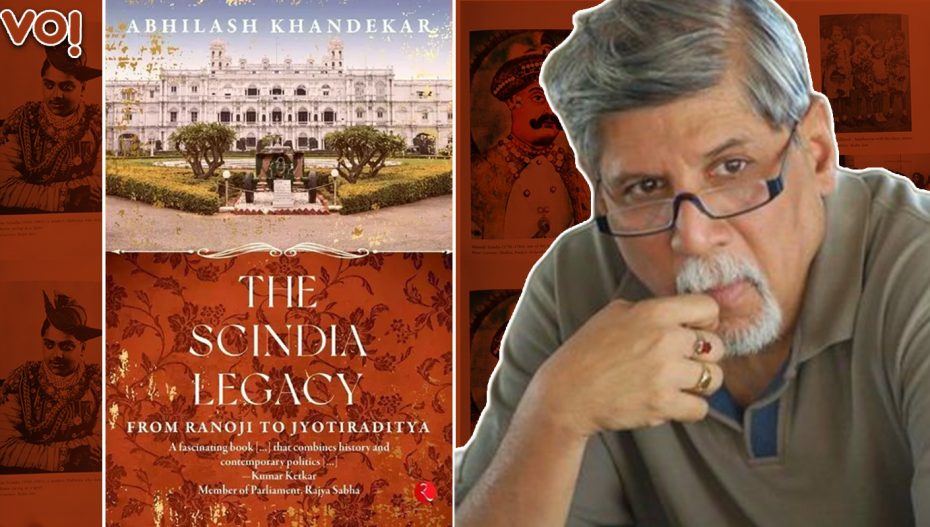A new book on Scindias claims ‘inexperience’ in diplomacy and administration and ‘sympathy’ for the British prompted Jayajirao Scindia to side with the British during the turbulent times of 1857.
The house of Scindias’ legacy dates back 300 years, having negotiated many rough passages of history including the great revolt of 1857 when the British deeply acknowledged their assistance in quelling what many consider as India’s first war of independence. Many authors and critics lean on the RSS ideologue VD Savarkar’s views on the Scindias. Writing in 1909, Savarkar, a revered figure among the present day BJP and RSS leaders, had criticised Scindia dynasty ruler Jayajirao for joining hands with the British. Savarkar had quoted unnamed persons and described Jayajirao as a “traitor” and “coward” who betrayed Rani Lakshmibai of Jhansi. “If Scindia is not for the country, drag him down from his throne,” Savakar had written.
In, “The Scindia Legacy –From Ranoji to Jyotiraditya [Rupa 2022], author-journalist Abhilash Khandekar however, offers a largely sympathetic but interesting aspects of events that may have forced the then Scindia ruler, Jayaji to act as ‘Pro-British.’ Khandekar, a keen observer of Scindias from three generations, Rajmata Vijayaraje Scindia, Madhavrao Scindia to Jyotiraditya, asserts that while the ‘Maratha’ court of Scindias was anti British, the British Resident and Jayajirao’s Diwan [prime minister] Dinkar Rao Rajwade prevailed upon Jayajirao to side with the British. Jayajirao’s army revolted forcing him to leave Gwalior for Agra. But it did not stop the Scindia ruler from ordering a surprise attack against Tatya Tope. “It was in this battle that Lakshmi Bai [Newalkar] met with her martyrdom at Gwalior and became an amar [immortal] personality in chapters of India’s rich history,” records Khandekar pointing that an stern, written warning by the then governor general Lord Cunningham may have forced Jayajirao to act against the British or side with the nationalist forces led by Rani Lakshmi Bai, Tatya Tope and Nana Saheb who had initially counted on Scindias and his Maratha court for support.
Khandekar points at another interesting and significant aspect about Jayajirao Scindia. In 1834, when Scindia ruler Jankojirao Scindia was on his deathbed, Gwalior was without a heir. Tarabai, widow of Jankojirao, aged 13, showed presence of mind to adopt a son to prevent the British from enforcing the [in]famous doctrine of lapse to annexe the Gwalior empire.
However, the story of successor’s adoption was rather hilarious, observes Khandekar narrating, “A trusted nobleman, Sambhaji Rao Angre, was immediately sent out in search of an eligible candidate. He chanced upon a group of kids playing marbles and pebbles in a nearby ground of the palace. The unmindful boy, busy as he was in his little game, was surprised when he was approached by Angre who was instantly impressed with his ability to ‘shoot’ [with marbles and pebbles] accurately.
Incredible as it may sound, Angre saw the eight-year-old Bhagirath Shinde’s ability to shoot accurately as a sign of good omen and the eighth maharaja of Gwalior was chosen who ruled from 1843 to 1886, observes Khandekar. Bhagirath was rechristened as Jayajirao.
From 1857 onwards, The Scindias have been derided for their dubious role in 1857 including the present day Scindias –Jyotiraditya Scindia and his two aunts Vasundhararaje and Yashodhararaje, all part of the BJP now. Their political opponents, particularly the Congress, often lean on noted Hindi poetess Subhadra Kumari Chauhan’s work, who had made a scathing attack on the Scindia legacy for being in cahoots with the British.
“Angrezon ke mitra Scindia ne chhodi rajdhani thi
Bundele harbolon ke muhn humne suni kahani thi
Khub ladi mardani wah to Jhansiwali rani thi”
[Friends of the British, the Scindias, had abandoned their capital, we have heard the story from Bundelon Harbolon (religious singers from Bundelkhand), she fought with valour, she was the queen of Jhansi.]
Watch the video here:












